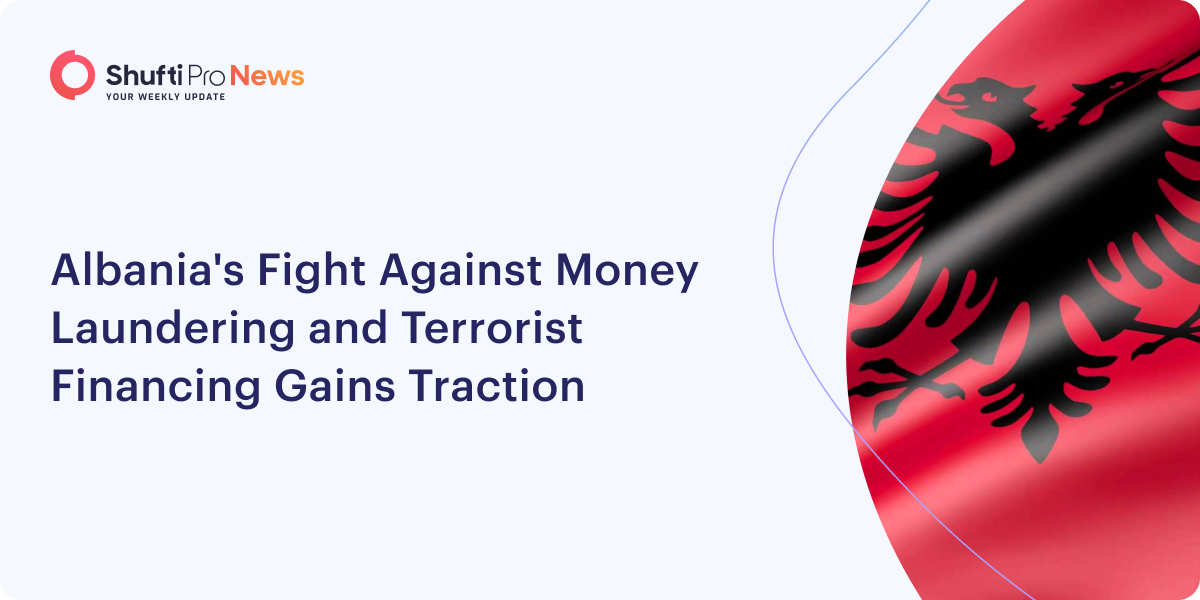Albania’s Fight Against Money Laundering and Terrorist Financing Gains Traction

Based on the Council of Europe’s MONEYVAL review report, published on June 21st, Albania has improved its measures to combat terrorist financing and money laundering. However, much work remains to be done.
On June 21st, the Council of Europe released the MONEYVAL report, stated that Albania had made significant progress in combating money laundering and terrorist financing, rectifying the shortcoming regarding AML requirements and streamlining the process of obtaining beneficial ownership information by authorities. The authority has indicated Albania has improved compliance with FATF recommendations regarding beneficial ownership, supervision, and regulation of non-financial businesses. Albania is rated as largely compliant after being re-rated from partially compliant.
The governing body noted that actions were taken to address essential shortcomings concerning trustees being subject to anti-money laundering requirements and to streamline authorities’ access to beneficial ownership information. Notaries and real estate agents are also regulated and supervised more effectively in the country. Upon violation of AML legislation, licences may be revoked. Generally, Albania is found to comply with six recommendations, largely in compliance with 31 recommendations, and partially in compliance with one recommendation. MONEYVAL must be informed of further progress made by Albania within two years (2025).
As part of Socialist Party proposals in March, the Financial Intelligence Agency will be renamed the General Directorate of Money Laundering Prevention. This change also entails the introduction of a new salary scale parallel to the judicial system, which grants the agency a separate status from the civil service. The amendments will facilitate investigating cryptocurrency usage, currency exchange, and IP tracking.
The country still ranks as the lowest in the region in terms of its overall risk of money laundering as of last year. The Albanian government ranked 74th out of 128 countries and received 4.92 points out of 10, where zero represents the lowest level of risk. A score of 4.14 was achieved by Kosovo, 4.87 by Serbia, 3.94 by North Macedonia, and 3.99 by Montenegro. There was a similar performance by nearby EU member states as well, with Greece acquiring a score of 3.7 compared to Italy’s 4.55.
The Financial Action Task Force (FATF) reported that Albania had made substantial progress in improving its anti-money laundering and counter-terrorist finance regime since 2020, since its inclusion in the FATF grey list, including a significant increase in the number of cases involving money laundering, especially those involving foreign crimes that were laundered in Albania with the proceeds.
Earlier this year, the FATF stated that whilst it appreciated Albania’s efforts to address its strategic deficiencies and that it had substantially completed its action plan, it was insufficient to consider its removal from the grey list.
Suggested Reads:
FATF INTERNATIONAL COOPERATION REVIEW GROUP MEET IN MAURITIUS TO DISCUSS UAE’S POSITION ON THE GREY LIST
CYPRUS MAKES PROGRESS IN IMPLEMENTING AML MEASURES
MONETARY AUTHORITY OF SINGAPORE (MAS) FINES FOUR FINANCIAL INSTITUTIONS FOR BREACHING AML LAWS

 Explore Now
Explore Now













